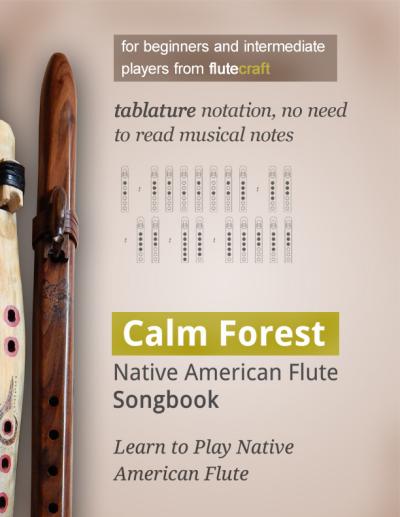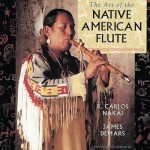Today’s post is a bit different, but I really wanted to share it with you. As some of you may know, since I mentioned this many times, my interest in Native American flutes was born due to Northern Exposure – a wonderful TV show from the ’90. But this show taught me something else – the power of story as a therapeutical, and/or self-development tool. Not only taught me how to build flutes out of wood (which improved my self-confidence), it also taught me that we can find great wisdom and emotional comfort in modern stories.
Many cultures around the world, through the ages, created healing stories and fables that were meant to heal a person suffering from emotional trauma, or provide emotional comfort. In some ways, one may think our modern world lacks such stories – the “culture of the white man”, the so called “Western Culture”, seems to never develop such healing stories.
But in reality, it is very difficult to escape our inborn humanity – it’s an evolutionary and anthropological thing – we are drawn to such stories. And the Western Culture actually created such “healing stories”. Let’s talk a bit about role of the movies and Star Trek, because seeing Star Trek: Picard yesterday made me recall an important life lesson, but first, let’s go back to the ’90 and Northern Exposure once more.
Searching for Healing Stories of the White Culture
In the episode titled “Rosebud”, the local healer Leonard Quinhagak, portrayed by Graham Greene, is searching for the „healing stories” of the white man. Leonard seeks „collective unconscious of the white culture”, he wants to discover healing properties in white man tales and fables. He wants to uncover the wisdom and moral lessons of such tales. He interviews the citizens of the town, Cicely on Alaska, and they all tell various stories, yet none of them seems to have any healing effect, or wisdom to pass. They’re just empty stories, urban legends and such. They provide no emotional comfort or wisdom to the person.

Leonard and Ed in “Rosebud” episode of Northern Exposure.
Leonard is disappointed – he concludes he cannot find any healing meaning or wisdom in the stories of the white man. It’s like the western culture is not interested in using mythology or fables for healing at all.
Yet, in the final scene with Ed (portrayed by Darren E. Burrows), who’s watching Citizen Kane and contemplating his own life and his own purpose, Leonard wonders: what if the movies are the healing stories of the white man? Ed watches the movie because he’s stressed, and watching this cinematic story makes him feel better. Leonard seems to have found his medicine of the white culture. It is through the movie that Ed analyzes his own life – he contemplates his own life in relation to what he sees on the screen.
It is through movies that we share our collective unconsciousness, we share our Western mythology. As such, “Rosebud” is such a healing story – it teaches us that we we see on the screen may actually have a powerful emotional, healing impact upon us, the viewers. And it’s not only TV shows or movies – comic books or video games can be a source of wisdom as well.
(Of course, a lot of work was done by great writers and actors that created this episode of Northern Exposure.)
It Was No Longer Starfleet
(Beware, small spoilers for Star Trek: Picard episode 1 will follow.)
This part will be understood only by Star Trek fans :).
I talk all of this, because I’ve seen the first episode of Star Trek: Picard yesterday. In this new show, that follows the events of Star Trek: Nemesis, only nearly 20 years later, we see Jean-Luc Picard retired – a disappointed old man, who left the Starfleet because he felt it was no longer his Starfleet – it was an organization that gave up on their principles. In the backstory arc, a great tragedy was happening on the Romulus, the homeworld of the Romulan Star Empire. The Federation was about to mount a rescue operation, even if they were long time enemies with the Romulans. Yet a great tragedy occurred much closer to Earth, and because of this, the Federation decided not to help Romulus. Picard concluded the Federation has abandoned its principles and decided to retire.

Jean-Luc Picard and Number One
The entire episode 1 of Star Trek: Picard shows us glimpses of this new Federation – which seems to be the same as in The Next Generation, yet the people watching the new show – longline fans of Star Trek and The Next Generation – may conclude in the safety of their homes that this is no longer their Federation. This is more felt than seen on the screen. This is where we stumbled upon a threshold – some may argue this is not the Star Trek they were eating for and dislike the new show. Others may conclude this is the true Star Trek. Why?
Isaac Asimov, the great science fiction writer, said once:
Individual science fiction stories may seem as trivial as ever to the blinder critics and philosophers of today, but the core of science fiction — its essence — has become crucial to our salvation, if we are to be saved at all.
New Star Trek: Picard show seems to tackle modern problems. In doing so, the show continues the tradition of previous Star Trek shows – The Original Series, The Next Generation, Deep Space Nine and Voyager. These shows, too, were discussing various issues of their time, and in doing so, they were causing many viewers to take a deeper look on their own life, and the world they were living in. Star Trek: Picard does the very same thing – watch it, and you will know what I’m talking about (I don’t want to give away any more spoilers).
I was quite moved by what I saw in the episode of Picard. I’m a fan of Star Trek, and I fully understand Starfleet values. Star Trek made me contemplate life many times, and Starfleet values – thirst for knowledge or tolerance, to name a few – are an important part of my life, something I want to see in the world around me. Star Trek, to me personally, was about the power of science, the importance of friendship and personal growth, the beauty of tolerance and helping those in need. Yet just like Picard has concluded that his Starfleet abandoned these values, I, too, can see the world around has abandoned these values as well. Worse, in so many times I abandoned them as well. Seeing this on the screen makes a huge emotional impact upon me. Thus I begun to contemplate my life in relation to what I saw in the episode of a TV show.
Because the same way this isn’t the Federation we remember, so is world not the same thing we wanted it to be. The show rises emotional discomfort in the viewers, so that they could contemplate their own life and their own reality in relation to the show, or as metaphorically pictured on the show. It’s making us ask ourselves, “Are we still Starfleet?” And of course, this question will be understood (and thus, asked) only by those who understand Starfleet’s values. As such, the entire universe of Star Trek is a mythological metaphor of values, wisdom and archetypes.
Moving Lessons
Star Trek shows made me ask, “What is life?” Mass Effect games made me ask “How far is too far?” Battlestar Galactica made me ask so many ethical questions it’s difficult to list them all. Those are only few examples.
While Star Trek was always committed to discussing important social issues, it is not the only show, or “moving picture” that does it. I talk about Norther Exposure and Star Trek here, because these are the shows I watched when I was younger. There were many more – mostly science fiction, such as Battlestar Galactica or Stargate, but more serious shows as well, such as The West Wing. Each one of them made me contemplate my life in relation to the events occurring on the screen. Even Joseph Cambell, a very famous scholar, often uses Star Wars as an example of picturing ancient mythology in a modern form to retell ancient stories and picture archetypes as old as humanity itself, so even something as simple as Star Wars can provide wisdom.
As a big fan of science fiction shows and movies I was always trying to seek this deeper meaning – it is sometimes intended by the creators, writers and filmmakers; and sometimes, it is unintentional, and very individual for the viewer, to whom a story makes emotional sense due to his or hers own life experiences. Whenever a movie or a TV show, a game, a movie or a comic book causes you to experience unpleasant emotions, or emotional discomfort, it is wise to explore your experiences and feelings further. Whenever any of these new stories makes you contemplate ethics or your life, it is wise to explore these feelings and ideas.
People seeking emotional comfort or self-improvement may think they need to read ancient stories, or mythological fables, to gain wisdom, or emotional healing, but let us not forget that modern media is created on the same principles as the stories of the old. Writers and creators in general tackle this collective unconscious, the archetypes and mythology of human kind, and retell them through a new medium – whether it’s a comic book, a TV show, a movie, or a video game. Do not feel bad if you cannot find interest in ancient stories or sacred texts. Modern stories have a lot to offer. For example, I’m a gamer, and I can tell you right now – there is a lot of wisdom to be gained by playing the original Mass Effect trilogy that often tackles very difficult emotional and ethical subjects.
The Western Culture, the “white man”, never abandoned the healing stories and mythological wisdom. The Western Culture simply created a new medium for these stories, available to everyone who is willing to find the meaning.
Don't forget to become a fan on Facebook and subscribe to new posts via RSS or via email.










 via EMAIL
via EMAIL